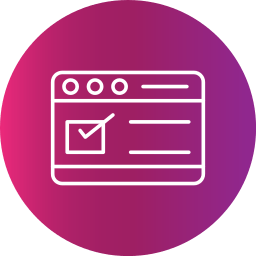OVERVIEW
1. By the end of this course, you will be able to confidently install R and RStudio, navigate the RStudio interface, and use R Markdown to create reproducible research documents. 2. Upon completion of this course, you will have mastered various data manipulation techniques in R, including importing and exporting data, performing data transformations, and effectively working with data frames and matrices. 3. After completing this course, you will have a solid understanding of data visualization in R, and be able to create custom plots, including bar charts, histograms, box plots, and scatter plots. 4. By the end of this course, you will have gained proficiency in statistical analysis in R, including descriptive statistics, hypothesis testing, regression analysis, and ANOVA and t-tests. 5. Finally, with the knowledge acquired in this course, you will be able to harness the power of R Markdown to generate professional reports and documents, customize document appearance, and create reproducible research workflows, all while applying your skills in a real-life data analysis project. Now is the time to take your data analysis skills to the next level. Enroll in “R Data Analysis: Mastering R Markdown for Reproducible Research” and unlock the full potential of R for your research and data analysis needs.
COURSE OUTCOMES
1. By the end of this course, you will be able to confidently install R and RStudio, navigate the RStudio interface, and use R Markdown to create reproducible research documents. 2. Upon completion of this course, you will have mastered various data manipulation techniques in R, including importing and exporting data, performing data transformations, and effectively working with data frames and matrices. 3. After completing this course, you will have a solid understanding of data visualization in R, and be able to create custom plots, including bar charts, histograms, box plots, and scatter plots. 4. By the end of this course, you will have gained proficiency in statistical analysis in R, including descriptive statistics, hypothesis testing, regression analysis, and ANOVA and t-tests. 5. Finally, with the knowledge acquired in this course, you will be able to harness the power of R Markdown to generate professional reports and documents, customize document appearance, and create reproducible research workflows, all while applying your skills in a real-life data analysis project. Now is the time to take your data analysis skills to the next level. Enroll in “R Data Analysis: Mastering R Markdown for Reproducible Research” and unlock the full potential of R for your research and data analysis needs.
COURSE REQUIREMENTS
In order to successfully enroll in the “R basics for data analysis” course, it is recommended to have some prior knowledge and experience with the following: 1. Basic programming concepts: Familiarity with programming concepts such as variables, data types, loops, and conditional statements will be helpful in understanding the R programming language. 2. Basic statistical concepts: An understanding of fundamental statistical concepts such as mean, median, standard deviation, and hypothesis testing will aid in comprehending the statistical analysis covered in the course. 3. Data manipulation: Familiarity with basic data manipulation operations such as importing and exporting data, transformations, subsetting, and filtering data will provide a strong foundation for the module on data manipulation. 4. Data visualization: Basic knowledge of data visualization concepts and techniques, such as creating plots and customizing their appearance, will be beneficial for the module on data visualization in R. 5. Markdown syntax: A basic understanding of markdown syntax will help in learning R markdown, which is used for generating reports and documents. It is important to note that these prerequisites are not mandatory but will provide a smoother learning experience for the course.
AUDIENCE PERSONA
This course is designed for individuals who are interested in learning and using R, a programming language for statistical computing and data analysis. It is suitable for beginners who have little or no prior experience with R. If you are a student, professional, or researcher looking to enhance your data manipulation, visualization, and statistical analysis skills using R, this course is perfect for you. You will learn how to install R and RStudio, navigate the RStudio interface, and work with R markdown to create reports and documents. The course also covers data manipulation techniques such as importing and exporting data, transforming data, and subsetting and filtering data using data frames and matrices. Additionally, you will learn how to create various data visualizations, including bar charts, histograms, and scatter plots, and customize your plots to effectively communicate your findings. The course further delves into statistical analysis topics such as descriptive statistics, hypothesis testing, regression analysis, and ANOVA and t-tests. You will also gain proficiency in advanced R markdown techniques, including creating tables and figures, incorporating mathematical equations, and managing citations and bibliographies. Furthermore, the course introduces you to the principles of reproducible research, guiding you in creating reproducible workflows, implementing version control and collaboration practices, and sharing and publishing research. The course concludes with a case study where you will apply your newly acquired R markdown skills to conduct a complete data analysis project, create a reproducible research report, and effectively present your findings. Whether you are a data analyst, researcher, scientist, or anyone who wants to harness the power and versatility of R for data analysis and reproducible research, this course is tailored to meet your needs.





